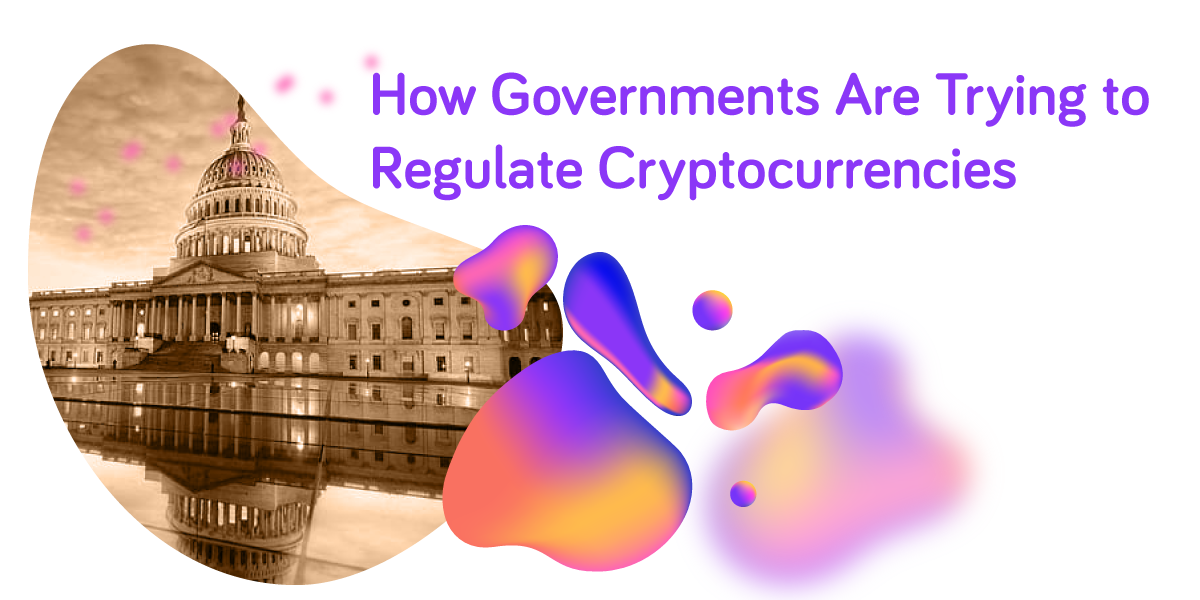Every country’s currency or legal tender is governed by a central authority — most often by the national bank. This means that transactions, economic processes and the flow of money and assets are centralized, i.e. controlled, traceable and tied to laws and regulations.
Unlike normal currency, fiat currencies and some forms of legal digital currencies appeal to us because of their decentralization. In other words, there is no overarching, national, state, governmental, bank or any other type of legal authority that controls or authorizes cryptocurrency processes, transactions, investments, and exchanges.
Instead, crypto runs on blockchain technology — various unconnected third parties maintain transactions in a secure, digital ledger. This ensures, in theory, the privacy of a user as their financial transactions are not linked to a central authority. It also means that if at some point in the future crypto is adopted as the standard global fiscal system, it may become a more novel, ethical and democratic economy than we have seen in the past.
Why does crypto need to be regulated?
There are always two sides to every coin. These factors also make cryptocurrency both risky and volatile. It is saturated with fraud, scams, misleading information, and illegal actions such as money laundering that are made that much easier with the use of technology. It often leaves people at risk of losing their money or being duped. As of 21st January 2022, nine countries have banned crypto in the hopes of protecting investors that might not be entirely savvy to the world of crypto. Another reason for these bans is that a decentralized currency like crypto, which is out of the hands of the powers that be, threatens the general stability of the existing economy — it’s seen as a wild card.
However, putting hard bans everywhere (like in China) isn’t the only option; there can be a middle ground for the countries that want it — that is regulation. So, how can this happen?
1. Controlling advertising
“Advertising, particularly those promoting specific crypto products or companies, can prompt people to start trading impulsively, which can lead to losses.”
In order to protect investors, some countries are regulating the cryptocurrency advertising space in various ways. For example, the UK takes a broader approach wherein crypto advertising must adhere to the same legislation that applies to other financial institutions. Spain, however, while still targeting the crypto sphere as a whole, also regulates advertising that comes from celebrities or influencers. Singapore is a country with the harshest regulations — they have banned all forms of crypto advertising aimed at the general public outright.
2. Establishing a digital, regulated currency
Despite China having been one of the world’s leaders in crypto mining, the country recently took a heavy-handed approach and cracked down on crypto miners to curb the environmental degradation that comes with mining. China did this through land-use regulations that forced crypto miners to leave the country. After crypto was banned outright, China is currently in the fledgling stages of introducing a digital form of their national currency.
We have yet to see whether this is an adequate substitute for a country whose citizens were highly involved in cryptocurrency before its ban. If successful — and despite being quite an extreme approach — it could serve as a case study for other countries attempting to regulate cryptocurrency and protect investors.
3. Working with platforms and users
Crypto “transactions can be conducted over exchanges or through direct transactions using your cryptocurrency wallet”. This is an entirely decentralized process. One way that governments are attempting to regulate this is by taxing the fiat currencies used to cash out crypto. However, this is not always helpful as many crypto users prefer exchanges and don’t always rely on fiat currencies to cash out their crypto.
Being aware of this, some governments have begun to regulate wallets and centralized crypto platforms themselves. This makes it easier for state authorities to trace crypto transactions. While this serves to protect investors and prevent illicit and fraudulent activities, a major downside for the public is that privacy is compromised.
In other words, as soon as some information about a private wallet is identifiable, potentially every past and future crypto transaction will be available to the regulatory/state authority via the regulated platform. However, this can only apply to one type of cryptocurrency at a time — Bitcoin or Ethereum, for example. This means that there will always be another cryptocurrency that will remain unregulated.
Overall, it seems that the regulation of cryptocurrency is going to be an endless loop of playing catch-up, with the virtual world always being one step ahead.
As long as you know your own country’s laws and regulations around cryptocurrencies and you make an effort to stay up-to-date, there’s no need to worry when trading. For that, Your Friendly Crypto Exchange is ready to have your back on this exciting journey. Try IXFI today.
Disclaimer: The content of this article is not investment advice and does not constitute an offer or solicitation to offer or recommendation of any investment product. It is for general purposes only and does not take into account your individual needs, investment objectives and specific financial and fiscal circumstances.
Although the material contained in this article was prepared based on information from public and private sources that IXFI believes to be reliable, no representation, warranty or undertaking, stated or implied, is given as to the accuracy of the information contained herein, and IXFI expressly disclaims any liability for the accuracy and completeness of the information contained in this article.
Investment involves risk; any ideas or strategies discussed herein should therefore not be undertaken by any individual without prior consultation with a financial professional for the purpose of assessing whether the ideas or strategies that are discussed are suitable to you based on your own personal financial and fiscal objectives, needs and risk tolerance. IXFI expressly disclaims any liability or loss incurred by any person who acts on the information, ideas or strategies discussed herein.




